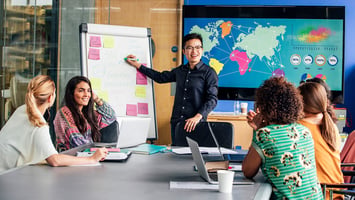Delivering Exceptional Customer Service:
Learning to Improve Relationships, Culture, and Business Outcomes
Abstract
Rapid expansion challenges internal service functions to scale as quickly as demand requires. Insight Experience worked with a professional services firm to develop a business simulation to use with a large population of employees primarily responsible for serving an internal customer base. This program was developed to be a practical, applicable, and memorable customer service training experience.

Challenge
A global professional services firm rapidly expanded to acquire new products, talent, and systems. These changes challenged internal functions to keep pace with service requests. The firm hired Insight Experience to design and deliver a leadership development program to highlight service expectations, train key internal service employees on the elements of effective customer service, and draw logical connections between internal and external customer service.
Solution
Insight Experience designed a half-day learning program, the Customer Service Mindset program, that features a two-round business simulation and is delivered virtually by a global facilitation team. Each round of the business simulation maps to one of two key customer service models, one that features learning content for daily customer interactions and the other for ongoing iterative improvement of service through systems and processes. Throughout the simulation experience, teams work together to make collaborative decisions about relatable but complex customer service issues, such as a request from a senior leader that conflicts with the team’s priority road map. Teams that are able to balance their interactions across the four Building Blocks of Excellent Customer Service as well as simplify and solve ongoing service processes achieve the best business outcomes.
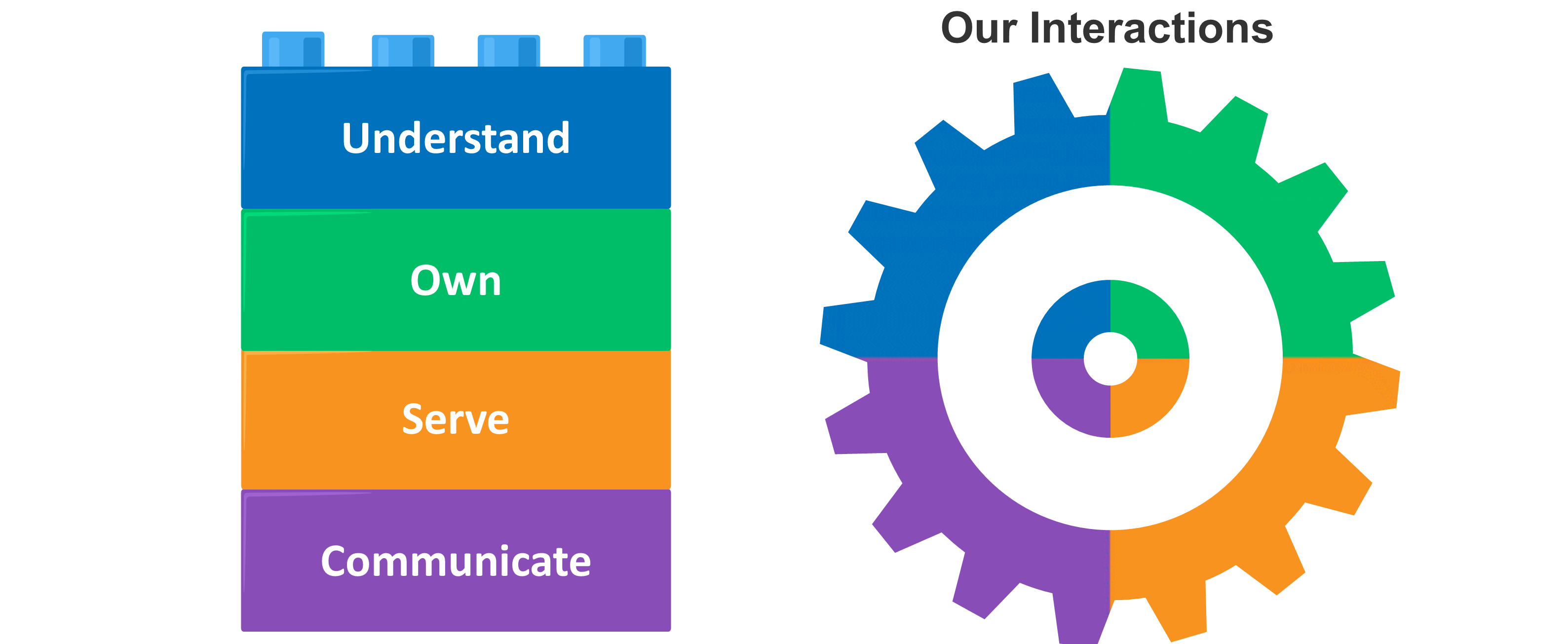
Learning Objectives
In the Customer Service Mindset program, participants develop and improve skills to:
- Understand the components and importance of excellent internal customer service.
- Identify practical ways to deliver customer service in diverse and challenging situations.
- Reinforce connections between effective internal customer service and overall business results.
- Develop action steps to improve interaction and service in real life.
- Think critically about ways to create ongoing service enhancement on an enterprise level.
Design Highlights
The program is designed to introduce learners to the Building Blocks of Excellent Customer Service before challenging them to consider ways to deliver enhanced customer service on an enterprise level. The issues faced by learners in the simulation mirror actual service situations faced historically by individuals in the firm.
A combination of small teams, cross-functional triads, and large-group discussions help learners better understand the business, diverse perspectives, and potential solutions to service concerns.
Virtual delivery of this program enables participants from different geographies and functional departments to learn together. This accommodates multiple time zones and develops individual insight into the types of service requests fielded in other functions of the business.
Program Agenda
This half-day program includes two rounds of simulation decision-making, comparative debriefs, and learning discussions.
Sample Agenda:- Introduction to the program and business simulation.
- Content: Building Blocks of Excellent Customer Service.
- Simulation Round 1: Building Blocks of Excellent Customer Service.
- Round 1 large-group learning discussion: Building Blocks.
- Break.
- Content: Serve/Simplify/Solve.
- Simulation Round 2: Serve/Simplify/Solve.
- Small-group discussion: What could we simplify and solve in our organization?
- Round 2 large-group learning discussion: Serve/Simplify/Solve.
- Commitment to action: Email to my future self.
- Close of session
During the final debrief, facilitated discussion helps the learners connect customer service responses and business outcomes. After the conclusion of the program, participants receive a report that provides feedback for the decisions they made in the simulation, modeled business outcomes for their choices, and content handouts highlighting the models presented.
Program Content
The Customer Service Mindset program features content on:
- The importance of a Customer Service Mindset to internal and external customer relationships.
- The Building Blocks of Excellent Customer Service model (Understand/Own/Serve/Communicate), which improves daily interactions.
- The Excellent Customer Service Cycle: the foundation for ongoing, long-term service enhancement across the organization.
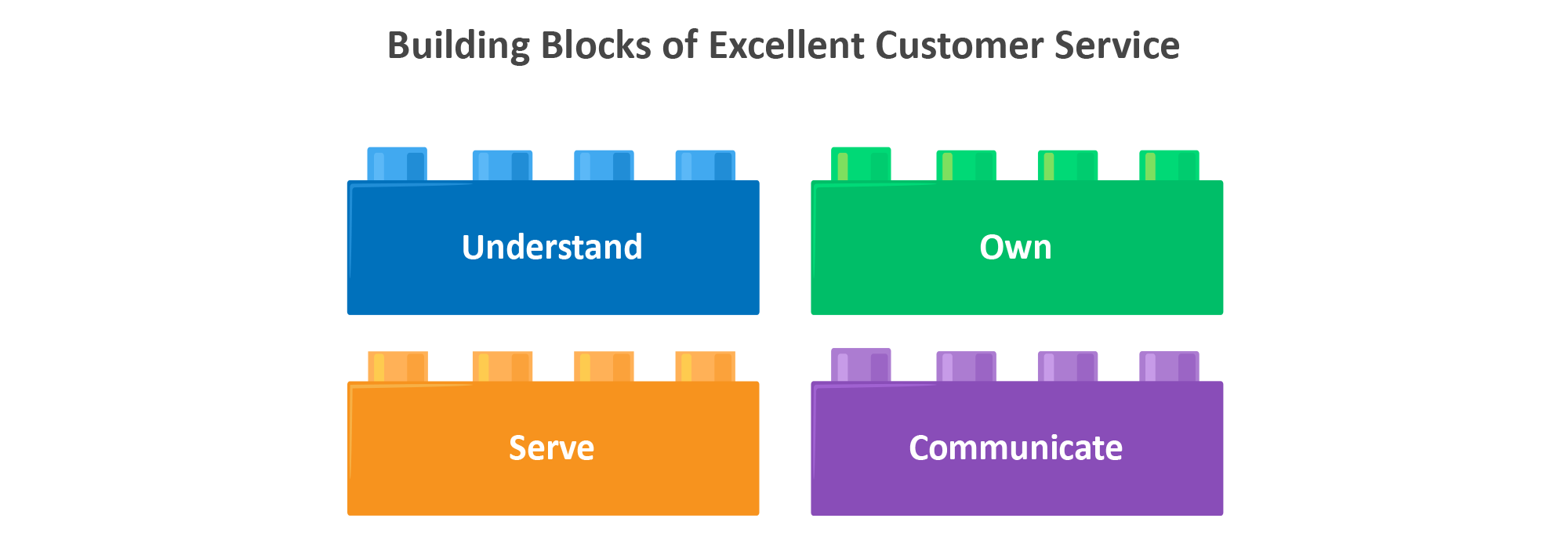
Excellent Customer Service Cycle
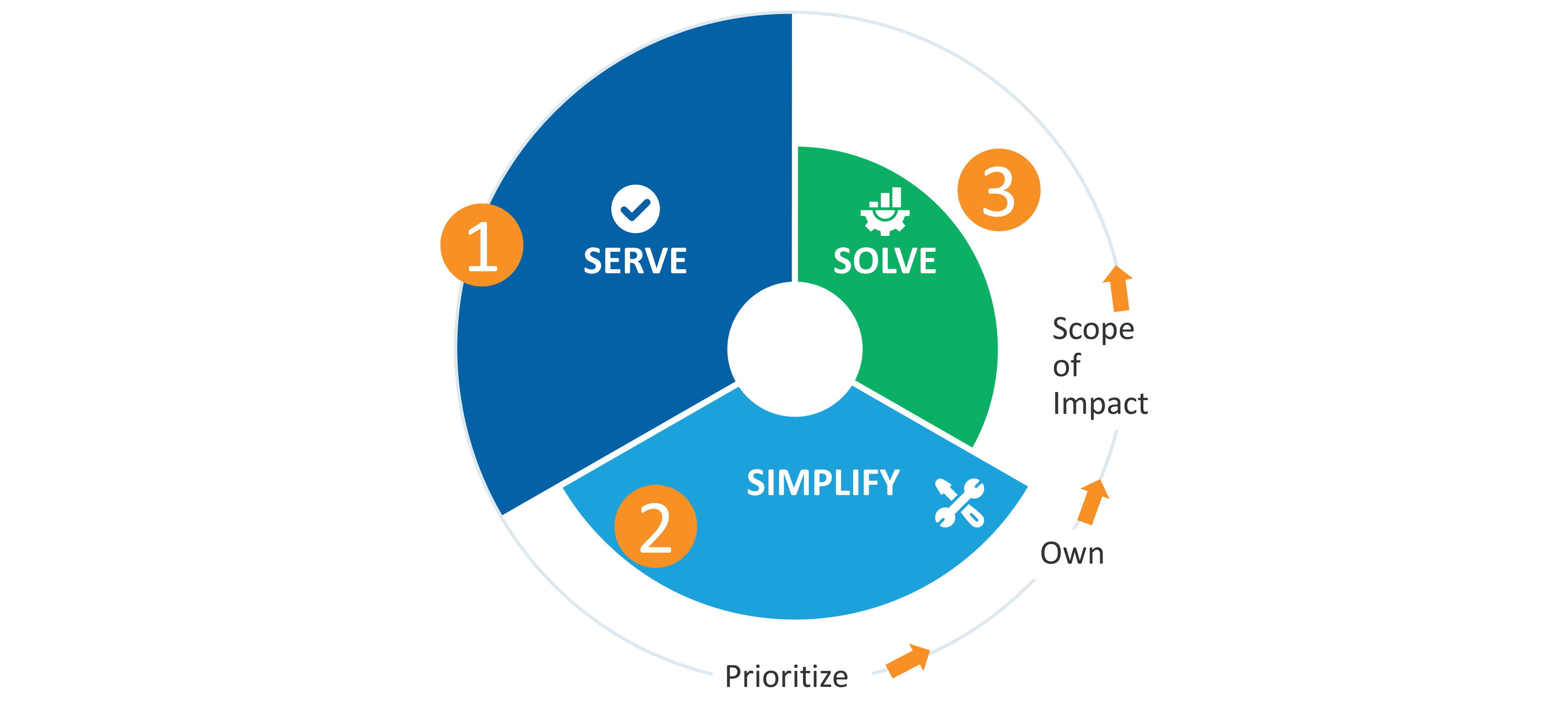
Simulation Overview
Before the program, participants read a case study of various situations encountered by an employee of a fictional professional services firm called BrightLights Services (BLS). Participants then respond to survey questions about which characters provided the best and worst service. Pre-program questions also provide facilitators with insights about what is happening in the departments of the various learners; this enriches conversation during the program.
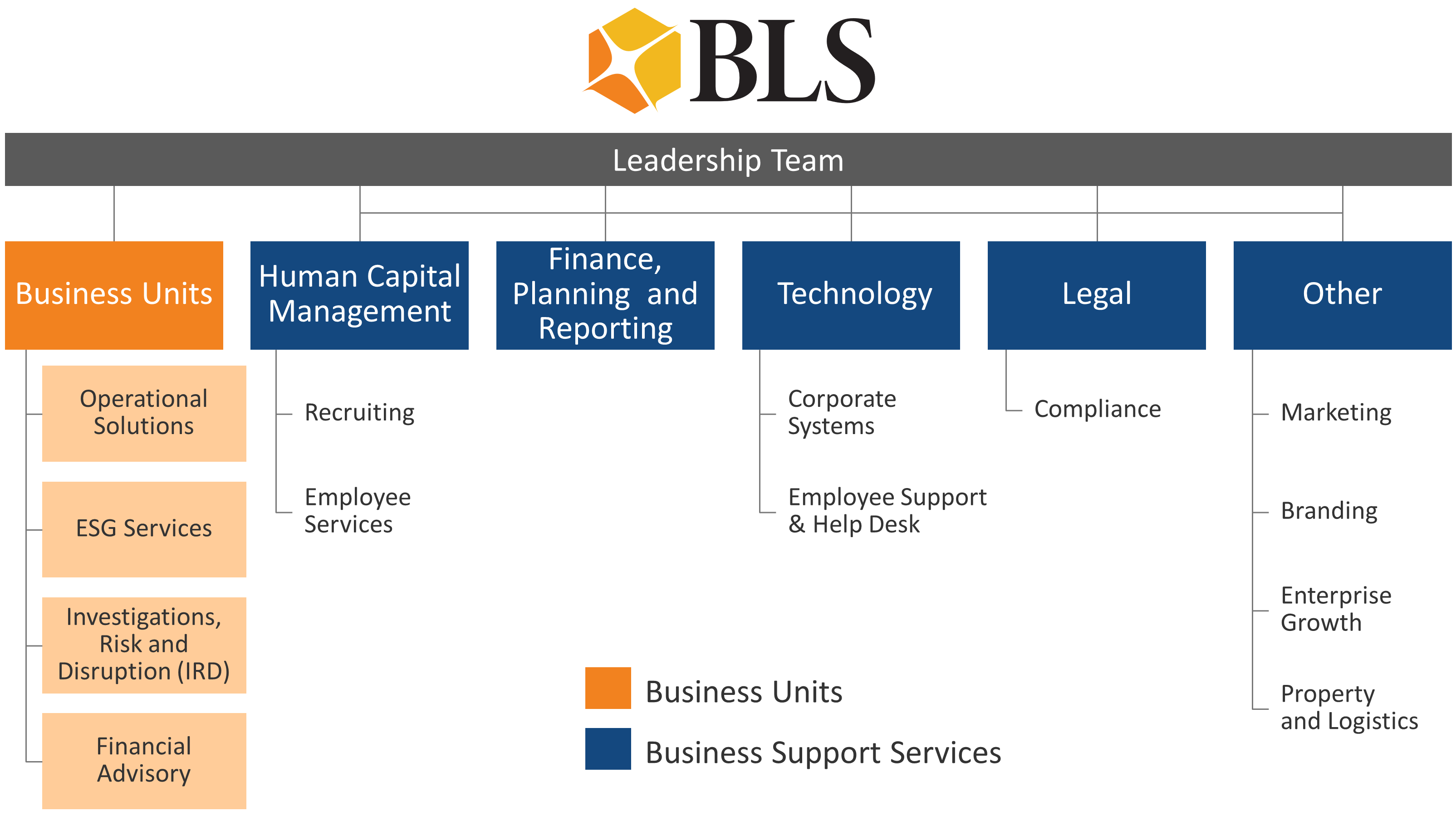
During the business simulation, functionally diverse participants work together in teams to solve customer service requests fielded by employees of BLS. Thinking strategically to apply the Customer Service Models presented and relying on their real-life experience, teams are responsible for selecting appropriate responses to critical interactions and requests from other BLS employees (often functional leaders). Each interaction features a unique function, leader, and request, providing learners with diverse challenges and exposing them to many types of realistic customer service situations.
History and Results
Since its launch in mid-2023, more than 6,500 participants from across the globe have completed the Customer Service Mindset program. In the final large-group debrief conversation of the day, participants share one action they plan to carry forward in response to their learning. Some responses received thus far are:
- "I would focus on enhancing my ownership and serve more diligently."
- "Own the task and try to deliver effectively, efficiently and creatively."
- "Share examples of how we have successfully found solutions for our clients; sharing best practices."
- "Communicate effectively. Use clear and concise language."
- "Focus on collaboration and communication."
- "Reevaluate my work ethics to ensure that it aligns with all the learnings from today."
Here is what some participants have said about the program:
- "These sessions reinforce the values and vision of [the] company and can contribute to the overall organizational culture."
- "It helped to enhance my interaction & Communication skills. Also made me understand how we can pay attention to our customers’ needs and keep them happy & satisfied."







